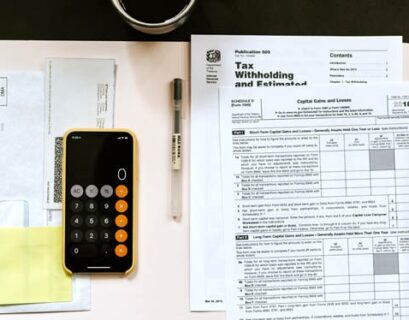In the dynamic world of freelancing, time is both a valuable resource and a potential challenge. Without the structure of a traditional office environment, freelancers must navigate the complexities of managing their time effectively to balance work commitments, personal responsibilities, and leisure activities. From juggling multiple projects to maintaining a healthy work-life balance, effective time management is essential for success and fulfillment as a freelancer. In this article, we’ll explore practical strategies and tips to help freelancers master the clock and optimize their productivity.
1. Set Clear Goals and Priorities
The first step in effective time management is setting clear goals and priorities for your freelance work. Define your short-term and long-term objectives, both professionally and personally. Break down larger goals into smaller, actionable tasks, and prioritize them based on urgency and importance. By having a clear roadmap of what you want to achieve, you can focus your time and energy on tasks that align with your goals and bring you closer to success.
2. Establish a Routine and Schedule
Creating a structured routine and schedule can help freelancers maintain consistency and discipline in their work habits. Set regular working hours and designate specific times for different tasks, such as client meetings, project work, and administrative tasks. Stick to your schedule as much as possible, but also allow for flexibility to accommodate unexpected changes or opportunities. Incorporate regular breaks and downtime to prevent burnout and maintain productivity over the long term.
3. Use Time Management Tools and Apps
Take advantage of time management tools and apps to streamline your workflow and stay organized. Utilize project management tools such as Trello, Asana, or Todoist to track tasks, set deadlines, and collaborate with clients or team members. Use time tracking apps like Toggl or Harvest to monitor how you spend your time and identify areas for improvement. Experiment with productivity apps such as RescueTime or Focus@Will to minimize distractions and stay focused during work sessions.
4. Practice the Two-Minute Rule
Adopt the “two-minute rule” to tackle small tasks and decisions immediately instead of procrastinating or letting them pile up. If a task can be completed in two minutes or less, do it right away rather than adding it to your to-do list. This simple rule helps prevent tasks from accumulating and becoming overwhelming, allowing you to maintain momentum and productivity throughout the day.
5. Break Tasks into Manageable Chunks
Break down larger projects or tasks into smaller, more manageable chunks to make them less intimidating and easier to tackle. This approach, known as “chunking,” helps prevent overwhelm and allows you to focus on making progress one step at a time. Set specific, achievable milestones for each chunk of work and celebrate your progress as you complete them. Breaking tasks into smaller chunks also makes it easier to estimate time requirements and allocate resources effectively.
6. Minimize Distractions and Interruptions
Identify and minimize potential distractions and interruptions in your work environment to maximize focus and productivity. Create a dedicated workspace free from distractions such as social media, TV, or household chores. Use tools like noise-canceling headphones or ambient music to block out background noise and maintain concentration. Consider implementing strategies such as the Pomodoro Technique, which involves working in focused bursts followed by short breaks to maintain productivity and avoid burnout.
7. Learn to Say No
As a freelancer, it’s essential to recognize your limitations and prioritize tasks that align with your goals and values. Learn to say no to projects or commitments that don’t serve your interests or contribute to your long-term success. While it can be tempting to take on every opportunity that comes your way, overcommitting can lead to stress, exhaustion, and subpar work quality. Be selective about the projects you accept and focus on those that offer the greatest potential for growth and fulfillment.
8. Delegate or Outsource Tasks
Recognize when it’s appropriate to delegate or outsource tasks that fall outside your area of expertise or require a significant time investment. Whether it’s administrative tasks, technical support, or creative services, outsourcing allows you to focus on high-value activities that drive your business forward. Consider hiring virtual assistants, freelance specialists, or automation tools to handle repetitive or time-consuming tasks, freeing up your time to focus on core business activities.
9. Practice Self-Care and Well-Being
Prioritize self-care and well-being to maintain physical, mental, and emotional health as a freelancer. Incorporate regular exercise, healthy eating habits, and sufficient sleep into your daily routine to sustain energy levels and cognitive function. Take breaks throughout the day to rest and recharge, and engage in activities that promote relaxation and stress relief, such as meditation, yoga, or hobbies. Remember that a healthy work-life balance is essential for long-term productivity and satisfaction as a freelancer.
Conclusion
Effective time management is a critical skill for freelancers seeking to maximize productivity, achieve their goals, and maintain a healthy work-life balance. By setting clear goals, establishing routines, using time management tools, and practicing strategies to minimize distractions, freelancers can optimize their time and work more efficiently. Prioritizing self-care and well-being is equally important to sustain energy levels and prevent burnout. By implementing these strategies and continuously refining their time management practices, freelancers can thrive in the fast-paced world of freelance work while enjoying greater productivity, fulfillment, and success.













